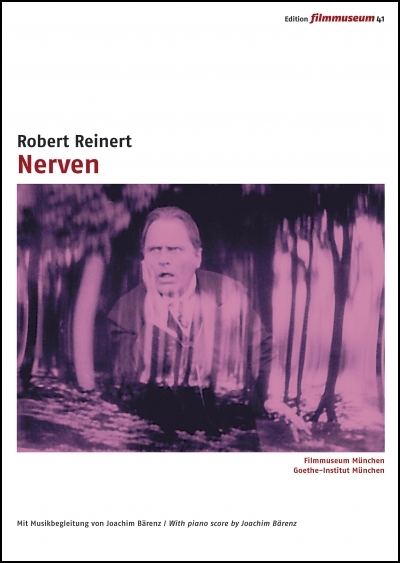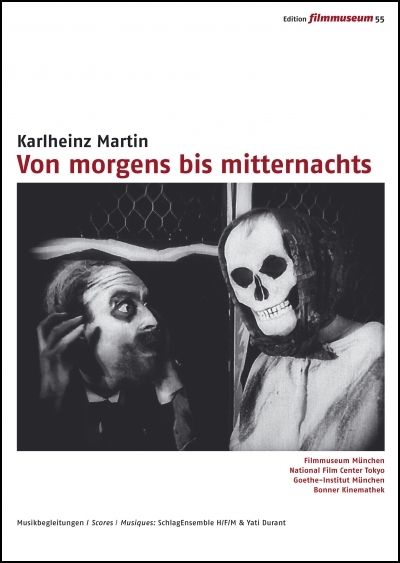GME Announces Classic Silent German Films, Now Available on DVD for Institutional Sales
/Expanding GME’s extensive focus on silent German cinema (especially of the 1920s), we are proud to release two seminal productions from this era – Walter Ruttmann’s BERLIN, DIE SINFONIE DER GROßSTADT and G.W. Pabst’s THE JOYLESS STREET. Both of these DVD editions are published by Edition Filmmuseum, Munich.
◊
Contemporary critics, as well as film historians, have always recognized G.W. Pabst’s THE JOYLESS STREET as a seminal moving image work produced during the Weimar Republic. Creatively, this film spans the border between German Expressionism and Neue Sachlichkeit (new realism). It is also the only silent film that brings together two of the movies’ greatest luminaries: Asta Nielsen, the European icon of the Teens, and Greta Garbo, who, at the end of the 1920s, would become the undisputed reigning star of the American cinema.
It is also one of the most spectacular censorship cases of the era. The story is set in the inflationary period in Vienna in the years immediately after World War I, contrasting the decadent rich with the struggling poor, and replete with scenes of sexual orgies, bordellos, and murders. While the film made its director famous, the state institutions of control guaranteed that no one would ever see the film in its original form. The film was cut in every country in which it was shown for either political or moral reasons (or both). This 2-disc DVD edition represents the most recent restoration effort – albeit still with missing footage – to return the film to its original form. Also included in this DVD set are companion documentaries that contextualize this now-famous film and the process of its meticulous restoration.
◊
The poetic documentary BERLIN, DIE SINFONIE DER GROßSTADT by Walther Ruttmann is perhaps the most famous of the “City Symphony” films that flourished worldwide in the 1920s (that also included MANHATTA from the United States and RIEN QUE LES HEURES in France). About his own production, German filmmaker Walther Ruttmann wrote that:
"Once I decided on the City as the main subject of a film, the sole
eligible candidate for casting in this role was Berlin. Berlin is
young, full of unlimited possibilities, the most rewarding motif
imaginable for film seen as ‘the art of motion’. During this shooting,
however, this modern Hydra of stone proved as capricious as any
human diva. It took longer than a year to capture the many facets
of her character in thousands of takes and miniscule snippets. With
no studio, no standing sets, and under imponderable circumstances
I had to lie in wait with my tiny detective camera, always ready to
pounce, submerged in the life of the city, under constant cover lest
my subjects become aware of my activities and, knowing they were
being ‘filmed’, start ‘acting.'"
MELODIE DER WELT was the first German sound feature film. The Hamburg-America Line sponsored this production, Ruttmann shaped the film into a travelogue, in which he juxtaposes and contrasts iconic buildings, modes of transportation, and cultural traditions from countries all around the world. The film was pioneering in its exploration of the artistic possibilities in joining the motion picture with recorded sound – i.e., an orchestral score, intermittent dialogue, and synchronized sound effects.
This 2-disc DVD set BERLIN, DIE SINFONIE DER GROßSTADT & MELODIE DER WELT also combines for the first time all surviving short film works by Walther Ruttmann from 1920-1931 (comprising his abstract films OPUS I-IV, sponsored commercials, a mood piece entitled IN DER NACHT, and a radio play, WEEKEND). All are presented in newly restored versions, often with original scores.
◊
Additional Silent German Films of Related Interest from GME












